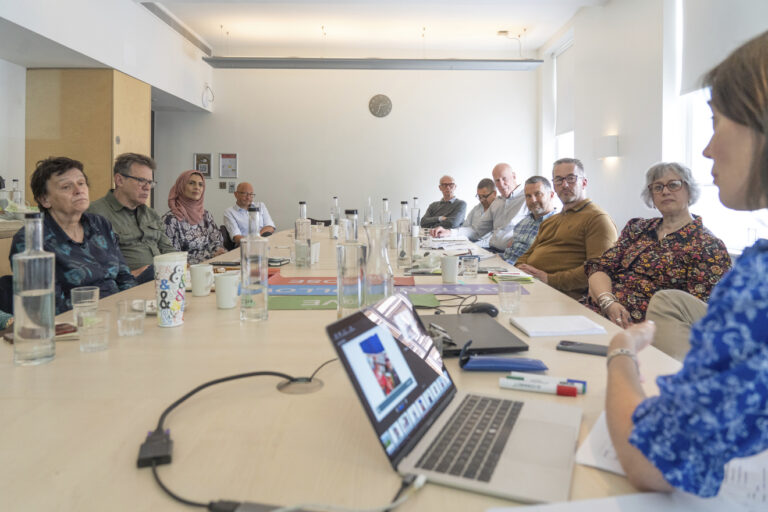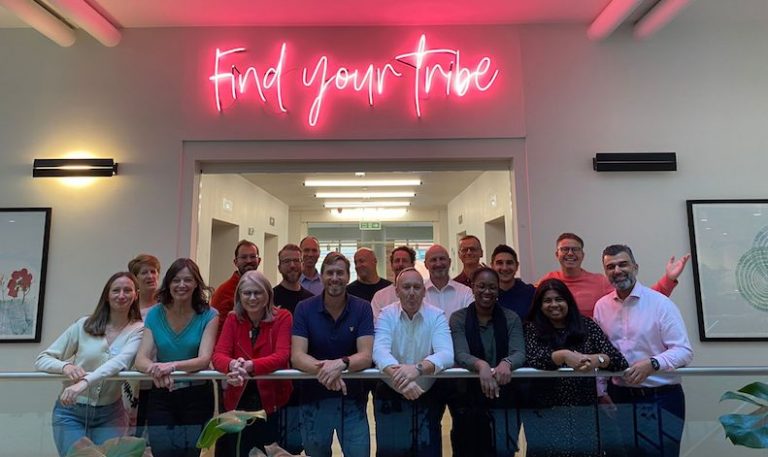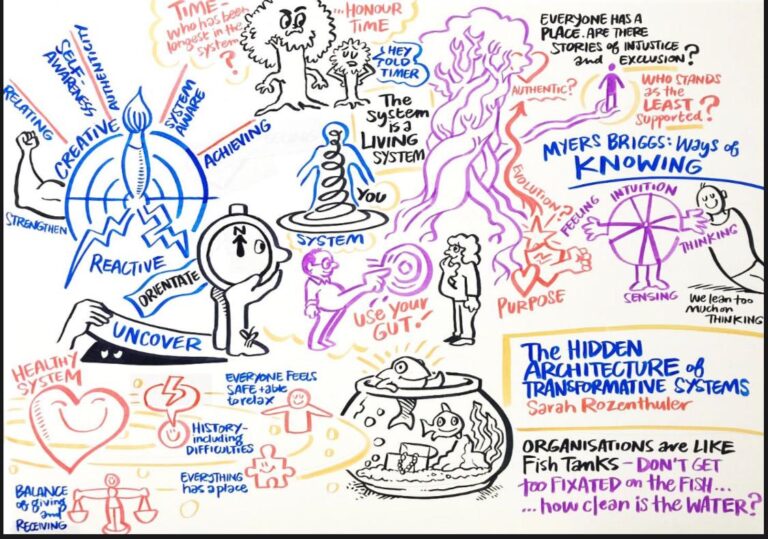
This post outlines a practical tool that will help you to stand in your truth when the stakes are high. Talking together about a contentious issue does not have to drive us further apart. When we find the right words to say, and the right tone to express them, a courageous conversation might even bring us closer together.
Having a challenging conversation involves taking a risk. Research reported inThe Psychologist (April 2005) reveals that we express our inner thoughts and feelings only 2 percent of the time in everyday conversations. Opening up and speaking out about what is really going on for us is a high-leverage move.
This can, however, make us feel uncomfortable. Because we’re afraid to rock the boat, cause unpleasantness or damage a relationship, we often avoid talking about what matters most. However, when we realize that sometimes the fastest way to resolve an issue or to turn around a flagging relationship is to discuss the undiscussable, a conversation becomes not only possible but inspirational.
No regrets
Speaking our truth does not in itself damage a relationship. Furthermore, the risks of staying silent are sometimes greater than the risks of speaking out. When I’ve been on the receiving end of another person saying “what’s so” – sensitively, skilfully and succinctly – it has improved the relationship. The air was cleared, trust increased and the exchange was energising. True there may have been some discomfort but this was short-lived.
What is essential is how we speak our truth. A Big Conversation stands or falls by the degree to which we are able to give voice to our observations, thoughts and feelings clearly, compassionately and completely.
To step into the next chapter of our life or career sometimes demands a Big Conversation. Whether it’s with our boss, partner or a member of our family, talking transparently can be tough. Having some tools to help us through the truth-sharing process can make all the difference.
Speak your truth OFT’N
Imagine you have a demanding new boss and an ever-increasing workload. As you look ahead, all you can see are your days getting longer and longer. If you don’t speak out, there is a risk that your work-life balance will get even worse, your resentment will fester and your personal life will suffer, as well as your performance at work. The question is: How do you speak your mind while continuing to have a productive working relationship?
To help you to stay on track when you need to speak your truth, keep in mind the four-letter acronym OFT’N. I developed this aide-memoire inspired by Marshall’s Rosenberg’s Non-Violent Communication and Cliff Barry’s Shadow Work®.
This simple tool can help you to prepare what you have to say when there’s a risk of someone getting triggered. You or them! A real life example follows this high-level outline:
- O is for observations. Begin by sharing your perception of “what’s so”. Leave to one side your judgments, opinions and assertions. Focus on the facts. Start with what you can both agree is the reality of the situation.
- F is for feelings. Share what you’re experiencing. Express your happiness, sadness, anger, envy, shame, fear or other emotion using simple “I” statements, such as “I’m frustrated.” Avoid false “I feel”s such as “I feel that you’re not being fair.”
- T is for thinking. Reveal how you perceive the situation. Speak of “what’s working” and “what’s not working”. Avoid talking in terms of “right” and “wrong”. Own what you say, as in “I think what’s not working here is …”.
- N is for needs. Request what you need. Take responsibility for what you want to be different. Your need could be for acknowledgement, appreciation or a more practical change. State your need without making heavy weather of it.
Following this structure will make you more focused and less emotional. Write down the actual words you could say, starting with your observations. A Big Conversation becomes much more manageable once you’ve found some of the actual words you might use.
A practical example
One client I coached faced exactly this challenge. As his work-life balance worsened and stress level increased, the need for a Big Conversation with his boss become more and more critical. In our coaching work, we focused on both the words to say and how to say them. Getting the tone right reduces the risk that the other person gets defensive and shuts the conversation down. This is what he came up with:
- “Over the last 3 months, my workload has increased significantly so I often stay in the office until past 7pm. Last week, I had to finish off the proposal for the new client, which took me until 10pm two nights in a row.” (Observations expressed as neutrally as possible)
- “As a result of all the extra work I’ve been doing, I’m feeling frustrated at having to stay late so often. I’m annoyed at the way work is cutting into my evenings and stopping me from doing my marathon training. I’m sad that I’m spending so little time with my family while our son’s so young.” (Feelings expressed as authentically as possible)
- “It’s great that the business is doing so well and that we’ve got so many potential new clients. What I think isn’t working, however, is that you’re not being realistic when you estimate how long a project will take. The jobs often take longer than you budget for, which makes scheduling difficult and means I often have to stay late to meet the deadlines.” (Thinking expressed as openly as possible)
- “What I’d like is to be involved in the scheduling decisions for proposals to new clients. I suggest we have a conversation every Monday morning to discuss the project pipeline and our top priorities. If you think you’ll need me to stay late into the evening, I’d like to be told at least 24 hours before so I can plan for this and let my family know.” (Needs expressed as clearly as possible)
While there are no guarantees a conversation will proceed along the lines you’ve prepared, you maximise the likelihood of a positive outcome by doing some prep. Getting the right “atmospherics” for a conversation is key. When we speak with neutrality, authenticity, openness and clarity, we will have no regrets about standing in our truth.






